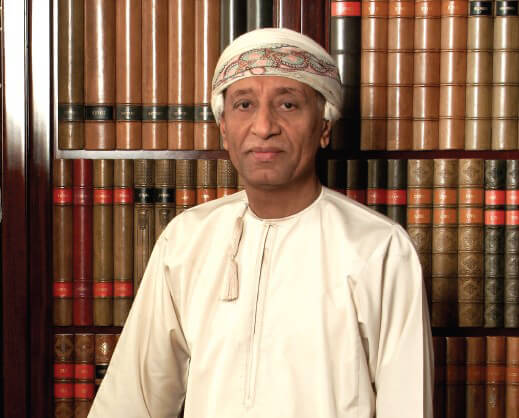His Excellency Dr. Mohammed Al Zubair bin Ali, Adviser for Economic Planning Affairs to His Majesty the Sultan of Oman, has been an icon in Oman’s development for over 40 years. His contributions to the Sultanate’s growth have been tremendous both in the private sector and through his role in the government. In this exclusive interview, H.E. Mohammed Al Zubair speaks to Tharawat magazine about his exciting journey in assisting in developing Oman economically, socially and culturally.
Interview with His Excellency Mohammed Al Zubair, Zubair Corporation
He takes us back in time showing us the life of a father, a government figure, an art lover, and the head of one of Oman’s most prominent family businesses. The Zubair Corporation has a wonderful history to show for. What was your vision at the time when you established your company?
I started our business in 1976. To be exact it was October 1976. It was the time of the beginnings of the Omani oil export. Earlier, I had worked at the Petroleum Development Oman Company (PDO), which I joined after completing my studies abroad in 1962. Quitting this prestigious company raised many questions; working there was favoured over any other job in Oman at the time. I was one of the few Omanis working in the finance and administration department and even my wife was surprised when I told her my intention of quitting my job and starting a business. My wife, some family members and friends tried to talk me out of this idea, but I had already set my heart on starting an independent business, where I could prove myself and reach my potential.
Of course, one should have a goal to achieve, but at the same time one needs to consider the reality and surroundings. Maybe I wanted to focus my business on a specific sector, but after studying the market, I found that goods and machinery required by PDO were the best choice for a start. These goods included the supplies needed by the company in its day-to-day operations: Tools, electric machines, dyes and many more.
It is important to mention here that over the 40 years after the establishment of my corporation, our business became more diverse; some of this is due to a plan and some of it was a response to opportunities. In fast growing small economies, business is more driven by reality and its surroundings than strict planning; still, an entrepreneur should have a clear idea on how to develop his business.
The ruling of His Highness Sultan Qaboos began in 1970, when Oman experienced a global breakthrough in all areas and opened up internationally; ventures came along, ranging from the construction of roads, ports, schools, and hospitals, to the latest development prerequisites. Actually, this breakthrough came at a time when the Omani private sector was still small and weak, with a few entrepreneurs who achieved a lot in a short period and in the absence of adequate capital. They contributed to many projects that worked as the foundations for the country’s economic development. At this time, we started to see national banks, first as joint ventures with foreign banks, insurance companies, importing companies for grains, hotels, a company the management of ports another for airport services, construction companies and many more.
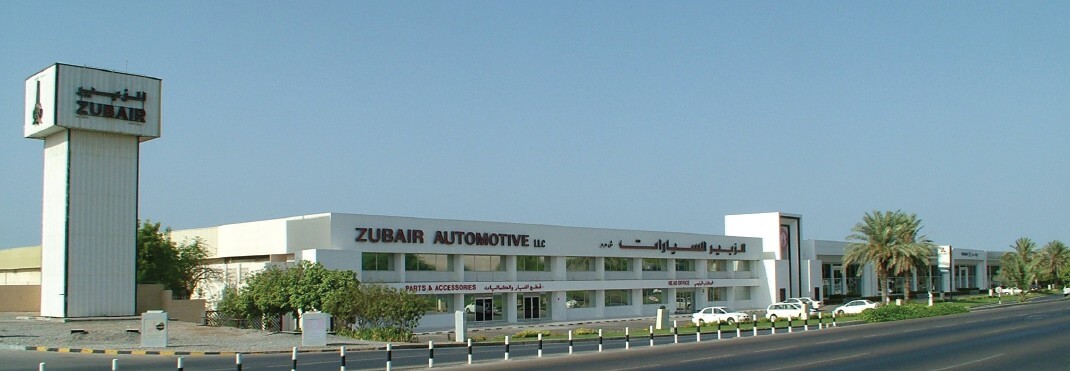
Providing the adequate capital for establishing these projects along with their business needs of financing, was the main challenge facing this group of businessmen. There were many key businessmen at the time, but their businessesn> were in importing and in the selling of food, clothing and other regular needs of the local market; they had neither the experiencespan> nor the desire, at the time, to explore this sort of business.
At that time then you’re role must have been two-fold: you were a businessman and at the same time an Omani national watching the country go through these changes.
Certainly, in the beginning there were about ten of these big businessmen I mentioned. Some would say: ‘Why do we always read the same names when it comes to new projects?’ The answer was quite simply that they were the ones able to do it. We always welcomed the joining of more businessmen to us, but that wasn’t easy. Switching from a businessman to an entrepreneur contributing in many projects and spending the majority of ones time establishing these modern companies, which would take many years to generate a ROI, was not exactly preferred.</p>
Not to mention that we had to form our first Chamber of Industry and Commerce in Oman, and also had to join many of the committees helping the government in areas. I had the honour of heading the establishment committee for the Chamber of Industry and Commerce, and that took a tremendous effort from my colleagues and me. Finally, it was setup and the laws were completed. I also had the honour to be the first president of the Chamber, which started its operations from offices allocated within my company building.
Of course everyone was taking over his role in helping to build the country, and we were supported and helped by the government and His Highness Sultan Qaboos. Referring to your first question about planning and >strategy, I will give an example of the circumstances that often lead to changing our ss”>business plans: One of our activities is the Zubair Automotive, currently one of our biggest >businesses. Back then, automotive business wasn’t part of our plan as it was a new sector. Plus, there were no roads and this kind of business</span> required big investments that we were unable to provide along with our other crucial projects. Still, when His Highness Sultan Qaboos shared his vision of having a private company to enable road trips between main cities, we had to step in and contribute. I started to execute that project by looking for the best busses for the unpaved Omani roads, we thought of importing American busses the so-called ‘School Busses’ as they were simple and able to work in such conditions. The government provided the required land for the operations, while we established the company and its facilities. The >company</span> was suffering, as operation expenses were exceeding the income. The government was aware of the situation and always made some exemptions to keep the any”>company running. This company provided the first public transportation service in Oman. After ten years of activity, it became fully government-ownedn>.</p>
The busses we imported were from Chrysler and that helped in our ss”>business relation with them. We continued and imported Chrysler<!–span> cars from the USA as well as the Japanese-made Mitsubishi, as Chryslerpan> was one of its key stockholders and promoted its cars outside Japan. This is how we started to work in the cars business. Later we expanded our business to include more international brands.
On the other hand, our businesses were evolving and after gaining experience and increasing the capital, we expanded to execute bigger and more complex projects. I used to run a thorough evaluation for all our businesses each two or three years, based on which we could decide to start new businesses and stop doing others that we believed were no longer aligned with the group. If you look at the businesses we had in the beginning such as tools, dyes, petroleum stations, you will find that today none of them are in our business portfolio.
The Zubair family enjoys a long-lasting and positive reputation, in Oman and abroad. What are the main success factors to keeping such a reputation safe over several generations?
First, we thank Allah we were blessed with an outstanding legacy and good name due to the efforts of our fathers and grandfathers. Many times a question was raised about the nature of our family business; my grandfather Ali bin Gomma’ for example was one of the key players working in trading. Trading here means that he used to travel to Eastern Africa and India to make deals. He also had close relations with the royal family in Oman and Zanzibar, which made him a key provider for their needs, plus he was involved in the money transfer transactions between the two countries and an advisor to both Sultans then: Sultan Turki in Oman and Sultan Bargash in Zanzibar. My father’s, Al Zubair bin Ali, trading activities were reduced to currency exchange and his main income came from his green funds within Oman and his properties which were due to his commitment to the royal court. He began his career by working as a clerk in the royal court of Sultan Faisal, then as the senior clerk and personal attendant to the crown prince Taimur bin Faisal. When Sultan Taimur started his ruling, my father became one of the key government members serving as the Minister of Justice, then as one of the five members of the Council of Ministers. My father Al Zubair was part of the upper-class in Oman and his gatherings included prestigious people. He was also an active participant in establishing the first two public companies in Oman: the Power Generator and the Ice Manufacturing companies in 1911.
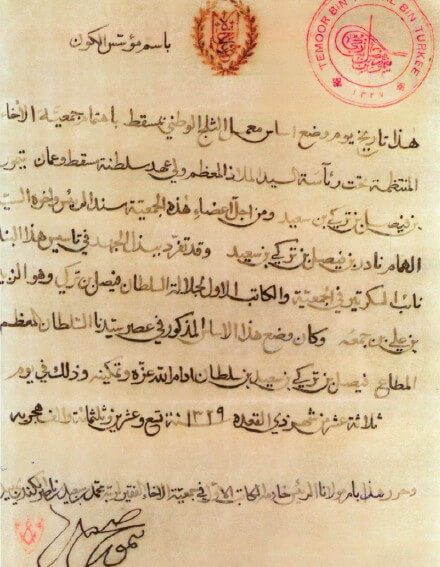
This history of good reputation and national service defined my approach to managing business; whenever I begin a business I always make sure it is honest and does not affect the family name. My philosophy in business is not to just make it a source for money but to have a business that is good enough to generate a rewarding income, making it possible to enjoy a nice lifestyle, starting a family, raising and educating children, and contributing to the community. It doesn’t matter to me whether I become businessman of the year as I am satisfied with what I achieved and what Allah enabled me to do.
From the start I defined a line for our company to follow when doing business; we don’t enter a deal or tender if we sense there is something we can’t fulfill or not aligned with our honest business practice. This in turn strengthens the trust of people, suppliers and banks in us.
Due to our transparent approach we were the first to communicate great losses in one of our businesses due to the recent global financial crisis. We took the initiative of informing the relevant banks and suppliers, providing them with a clear picture of the situation and a plan to overcome the crisis; they in turn were very supportive and helpful, which lead to restoring things back to normal.
When I started thinking about stepping down from my position as a president and leaving the company for the children to run, I took them to visit the presidents of the key banks we work with. I showed them the steps taken for the second generation to join the business, which started gradually many years ago, and is now moving to the most critical phase of the process by actually putting this generation in charge. The feedback on our succession planning was very positive.
You are working with all of your children, leaving them a wonderful legacy, which they helped building. Did your vision of the company change when your children joined the business?
I consider myself a very modern man who is up to date and always keen on getting to know new concepts in IT and business administration; still, for a person in his 70s, no matter how much he reads and learns, his views will differ from those of someone in his 30s or 40s. Certainly, people at my age are geared with experience and knowledge but they are used to a certain work approach, which may be an obstacle to developing a company in such a fast moving era. A quick look to key players in the world today and you will notice that the founders and owners of such companies are young people. For our company to compete and catch up with this fast pace, it needs to be run by a young generation as well.
My children gained enough experience in our company. They started to gradually join the company after getting their degrees abroad more than 20 years ago. At the beginning, each one of them worked as a trainee in different companies then moved to departments that were aligned to their qualifications. They moved up the career ladder till they reached the top management. I trust they can lead the company further into the future.
You have established a governance system for both the family and the business. In your view how does that system contribute to the success and sustainability of the business?
It is one of the key things that each company or business should have, and can be used as a system to articulate the responsibilities, obligations and other policies. Family businesses without a governance system face many issues, some of which could be severe. I know family businesses where a brother or a son withdrew large amounts, leading to the company’s failure to pay the salaries of its employees. Another example of one big family business in the Gulf that suffered in the 1980s of a capital liquidity problem then stopped paying salaries, banks and suppliers obligations. They hired a financial expert, who managed to convince the banks of providing funds to help restoring the business to a reasonable financial status. However, two of the three brothers took over the bank’s funding to buy an airplane for each of them, similar to the plane owned by the third brother who was running the business.
In our family each active member in the business has customised allowances. This is the system applied to everyone, even me. I remember, once, I was driving my car and I was about to run out of fuel. Close by was a gas station owned by our group. I drove into the station and when refilling the car, I discovered that my wallet was not on me. I called home asking them to send me money, as I couldn’t tell the man refilling my car to put the charge on my credit. That would have been against or rules.
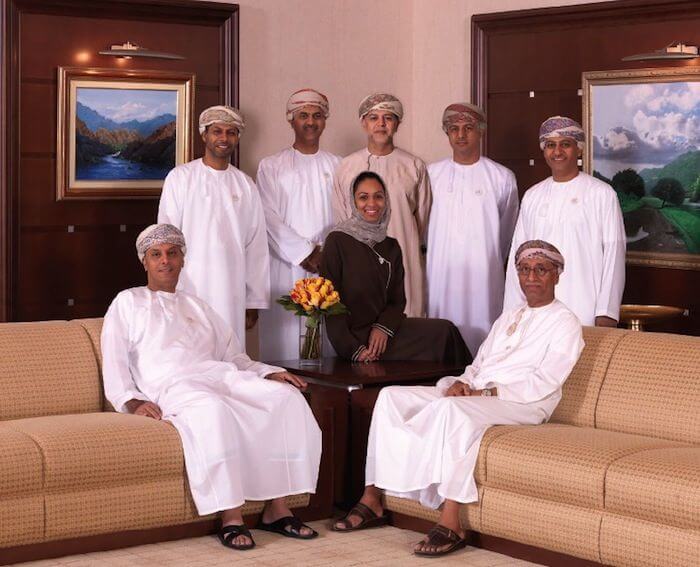
How does the Zubair Corporation prepare for the next family generation that may or may not join the business?
Honestly speaking, after I got married I asked Allah to bless me with three children. Allah fulfilled my wish and blessed me with my first boy Rashad, then we prayed to have a daughter, but Allah didn’t give us a daughter five more times. We were blessed with her as our seventh child. It seemed to me that we had a lot of children, but when I started my company and expanded my businesses, I thanked Allah for my childred. I had started to realize how much I would need them later. When my children came back from their studies abroad, I told them that they could get three months to explore the family business and could then make up their minds on whether they wanted to join or not. If they wanted to work with us, we would then see their competencies and preferences. I have seven children, one of them, my second son Al Zubair, doesn’t work in our corporation. I always believed in the importance of education; I remember how emotional it was when my six-year-old son Hani, who was then the youngest of the first three sons, went abroad. He travelled and when we returned home after he took the plane I kept on crying because he was so young to leave home. But our insistence to educate them helped us to handle these emotions.
A long time ago, we started to consider how to pass the leadership to the new generation, which was successfully accomplished. Today, I don’t have any managing tasks in the corporation anymore.
I have now twenty grandchildren, and we have created a financial program to help their parents in their education. Through this our mission is complete, and the parents can prepare their children and grandchildren to work hard and to prove the quality of what they learned. Then if some of them come to us with the right qualifications and have the desire to work with us, he/she is more than welcome to join.
There ought to be a motivation: if someone works hard and achieves good qualifications and advanced training, he/she will be entitled to join the group; not because his/her father owns a share in the business. We have a line separating ownership from working for the corporation.
The recent changes that have taken place in the economic landscape have challenged the largest and even most successful corporations. What can family businesses in the region learn from these changes and from the recent crisis?
First, there is something I wanted to mention earlier: You may ask us why we have over 60 companies working in so many areas? Actually, this diversity is crucial here in the Gulf, especially in Oman, where the economy is subject to ups and downs every four or five years. We witnessed an economic recession, mostly from abroad, in the 1970s and 1980s. To be specific it was 1986, 1992, 1996, and more after that. And when things start to plummet, the automotive sector is usually the first one to decline, then construction and building materials, followed by other sectors till it hits furniture. Why? Eventually, all these houses and buildings taking three years to be constructed will need furniture.
Thus, I thought of creating many businesses to cover all the phases of the economic cycle, in order to always have a direct chart, hopefully ascending. Relatively small economics need this balance; maybe if I were in another country, I would have limited my work to just two or three businesses due to a bigger market / cycle. Therefore, my vision is about examining our surrounding economy, estimating its size and how much it is affected by other economies. Hence, you should create a group of business lines that support each other.
In other words, you believe that one of the lessons that we should learn from the crisis: understanding your market, its size and more importantly understanding the cycle and how your businesses align with these criteria?
Certainly, you need to align your business with the economy’s size and face the issues emerging abroad, especially, when it comes to your importing markets. You also have to read, observe and research. You have to be realistic; don’t ever think you will be safe and secure from what takes place abroad. We have seen it in the recent economic crisis where many thought it would have no impact on them, but they couldn’t have been more wrong.
Many families are faced with the decision of what external financing method to apply. Several voices have recommended family businesses to go public and some of them did so with success. In your opinion, when or in what stage can a family business consider going public as a part of its growth strategy?
I believe this is a very serious matter. It all depends on the sort of power the key owners of the business will keep when going public. There are also other issues that should be addressed; for example, when outsourcing to companies of the group directly. The public companies law doesn’t allow direct outsourcing to companies of the group without getting quotations from third parties.
In our group, we have a governance system much similar to those applied to public companies. Therefore, I can say we are well prepared if we would want to consider the option of going public with most of our businesses.
Recently, the government authorities in Oman made changes to some key rules governing IPOs. One of the changes is to reduce the percentage of offered shares, enabling the owners to continue running their business with the same approach that contributed to its success. I believe that any company within this region should have a stockholder, or a small group of stockholders, retaining a majority of shares to guarantee the business’ sustainability and success. I am confident there will be many family businesses going public shortly.
However, I want to stress that for companies having many subsidiaries, there is the option of going public with two or three of their companies, while keeping the mother company intact.
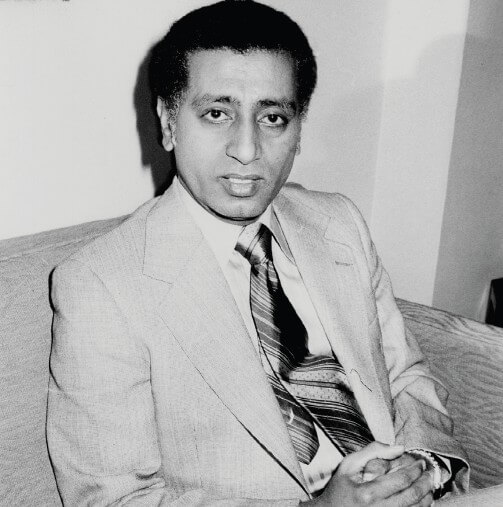
You come from an old tradition of trader families in the Gulf, but the last fifty years have changed the face of the earth drastically through globalisation. Do you feel that family businesses in the Gulf have changed much since you first started your career?
The economic policies of the government of Oman inspired the Omani companies to work in an environment of open competition that fulfils the requirements of globalisation. Oman joined the WTO in addition to signing international agreements with other countries such as the USA to increase competition through open markets. When it comes to the Gulf region, Oman applied all the agreed terms of the Unified Economic Agreement among the GCC. We even went further, when, a decade ago, the law of foreign trade agencies and agent protection act were cancelled, it became possible for any trader or business in the Gulf or worldwide to own a trading agency in Oman. There are already some Gulf companies that have agencies in Oman, while Omani companies are not equally treated in other countries. Although, this had a severe impact on Omani agents, they managed to adapt to the new changes and to do well without protection. Still, we hope other Gulf countries would follow in Oman’s footsteps and in their turn open their markets for Omani traders and businessmen.
So, Oman was the first country in the region to open her markets for competition. As an Omani family business, you had to establish a competitive attitude sooner than. But you are still not allowed to move to other countries to have a trading agency there?
It is true although some would rush into saying “It is not true; there are many Omani and foreign companies in the markets of these countries!”, but such companies do not own agencies. Key agencies, or any agency for that matter, must be 100% owned by a native of that country or represented by a local company. In Oman, you can find agencies of cars, electronics, tools and other goods that are exclusively owned by Gulf businessmen, while Omani agents can’t export the products of their agencies to these countries. Governmental initiatives to nullify Trading Agencies Act and opening markets to competition, led to dissatisfaction among Omani businessmen due to the resulting impact on their businesses, having their market accessible while unable to enter other markets. Omani businessmen believed it would be fair and reasonable to have a unified system applied to all Gulf countries. But they managed to adapt, and invested in their business relations with exporters to compensate for the local systems.
Although it is not as important as before, agents’ protection is still an obstacle for the creation of the unified customs wall of Gulf countries, making them a unified economic front. Overall, opening the Omani market to competition was very beneficial for the national industry. Many Omani companies had to upgrade their products to a higher quality and competitive prices and several of them were successful. For example, when I was the Minister of Industry and Commerce, we issued the law of protecting new industries. When the law was issued, I had already started in the manufacturing of wooden furniture, but I excluded the furniture business from the law, fearing people would think I issued the law to protect my own business. In the early days, our focus was primarily on the local market, later the market was flooded with much cheaper and better imported furniture. We had two options: either closing the factory, or finding modern manufacturing ways to reduce the production cost. This is how we managed to manufacture furniture in the 1980s better than the one we made in the 1970s, at an even lower cost.
The competition also made us change our strategy from a mixed production of furniture for houses, offices, mansions and hotels towards focusing on the hotel business, introducing us to cost-efficient production. This is how we evolved from a local to a global industry, with a presence in Europe and the USA where the factory production, in some years, accounted for more than 95% of our exports. We are pleased that many luxurious hotels worldwide were furnished with products provided by our Omani factory.
You would say that the competition became a driver in improving your own businesses’ competitiveness?
Right. Recently, I read about the suffering of industrial companies, and on inputs on how to restore them to cost-efficient production. In that area, I want to point out that many SME industries in the Gulf region are based on imported machineries customised by foreign consultants.
At the time of their establishment, these industries enjoyed local protection. However, their production cost becomes unreasonable after a while, not to mention that correspondent industries in other countries evolve and progress to provide better and cheaper products. Therefore, once the local protection ends, these industries fail to survive and decline. So, we can say that any industry should be based on planned strategy: a factory with the ability to continuously improve and optimising its production, or a factory in a joint venture with a strategic partner to provide the right management and continuous optimisation plan.
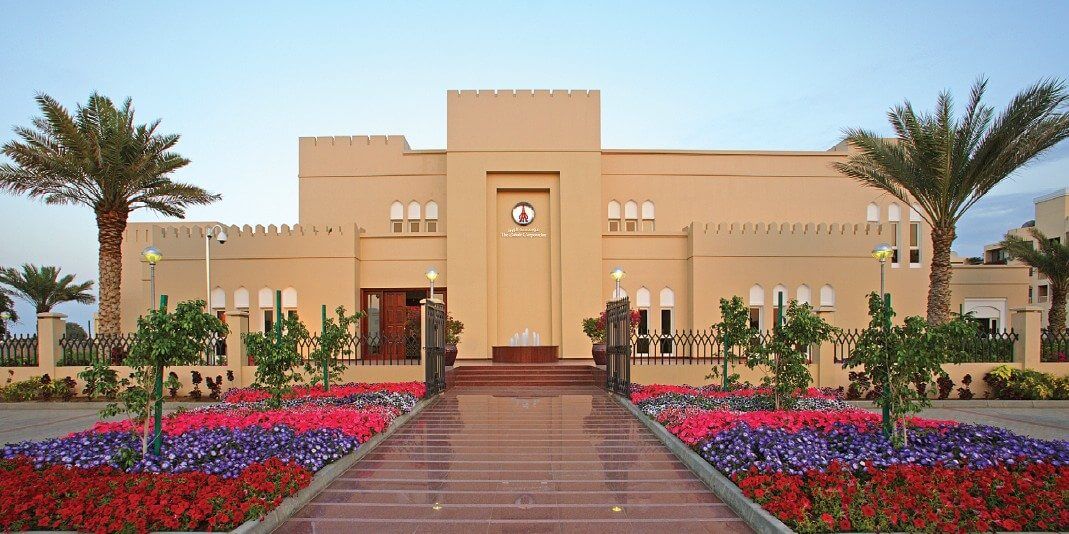
What are the things you still wish the Zubair Corporation to achieve in the future?
Actually, I wish to expand the Zubair Corporation’s contribution in philanthropic and social activities. We have already established Bait Al Zubair Foundation to be our arm in running these activities. We were pleased and proud of opening Bait Al Zubair Museum in 1988; the building it is in, was originally our house, built by my father 96 years ago. After moving to my new house, I thought about making the old house a museum for Omani heritage. Luckily, we had many original Omani antiques, which were either family inheritance or personal collection pieces. The museum was welcomed by His Majesty Sultan Qaboos who donated two Omani cannons to be displayed. The museum now consists of three buildings, in which visitors can have get an overview on the Omani history and heritage. The museum with its efficient administration and the quality of its exhibits, brought the desired success, reflected through the over 40,000 visitors annually. The museum also holds several cultural events and artistic exhibitions.
Now, the fourth building “Bait Al Nahda” is under construction. The building will be dedicated to showcasing the plastic arts of Omani youth, who have made amazing progress during the last 30 years. The building will also include a theatre, enabling us to host youth from all cultures to display their artistic and musical talents. Such young groups could become an inspiration for Omani youth to get involved in these arts.
In addition to the charity works, Bait Al Zubair Foundation also undertakes other community activities to help university scholars. We also hold an annual contest in photography for school students up to grade 12. The contest aims to select the best 100 photographers to enter a training course in photography. They then receive rewards and incentives to develop their potential. We also aspire to hold an international competition for photography soon. Among the activities of Bait Al Zubair Foundation was established “BAZ Publishing”; a publishing house that published many books, including 8 books by myself. One book is about Omani history and economy and the remaining seven were illustration books about Oman, that were a huge success, showing the readers the beauty of Oman and the richness of its nature. The house also promotes publishing the Omani youths’ work.
Al Zubair Corporation is keen to inspiring the Omani talented youth to join us. We have a program for selecting 160 Omani graduates from all areas to join an extensive training program, qualifying them to enter the middle management, and enabling them to become line managers in the companies of the group.
To finalise, I wish to say that family businesses in the Gulf region were blessed with supportive and helpful governments. In Oman, we had all the support we can think of from His Majesty Sultan Qaboos through his policies and efforts to develop the country, providing all these new opportunities to our generations.
Tharawat Magazine, Issue 9, 2011


